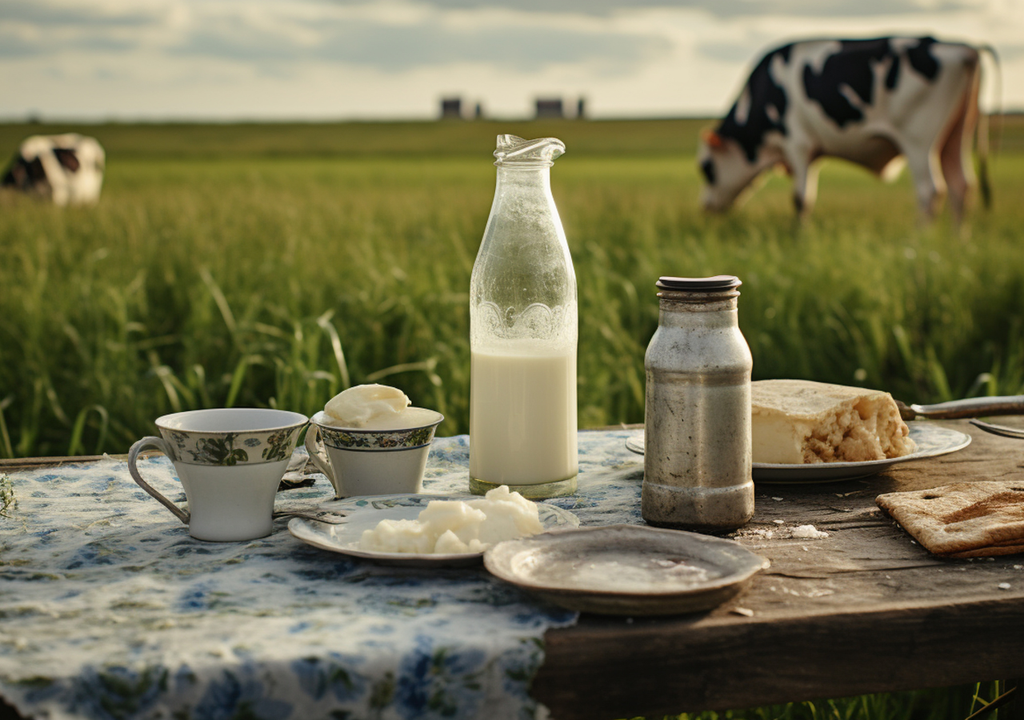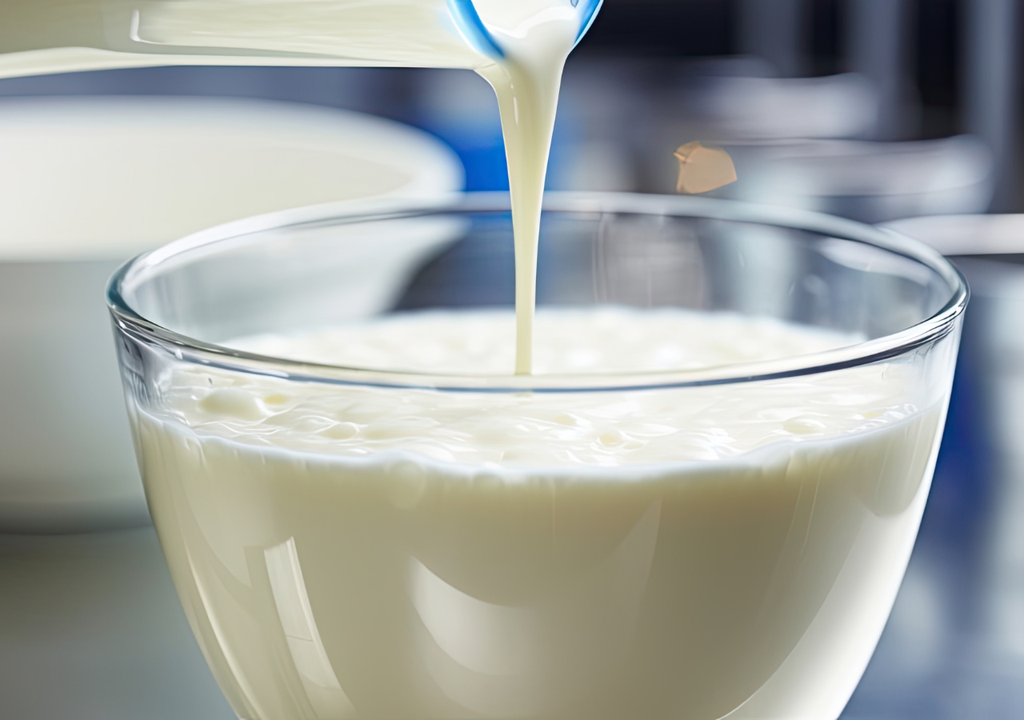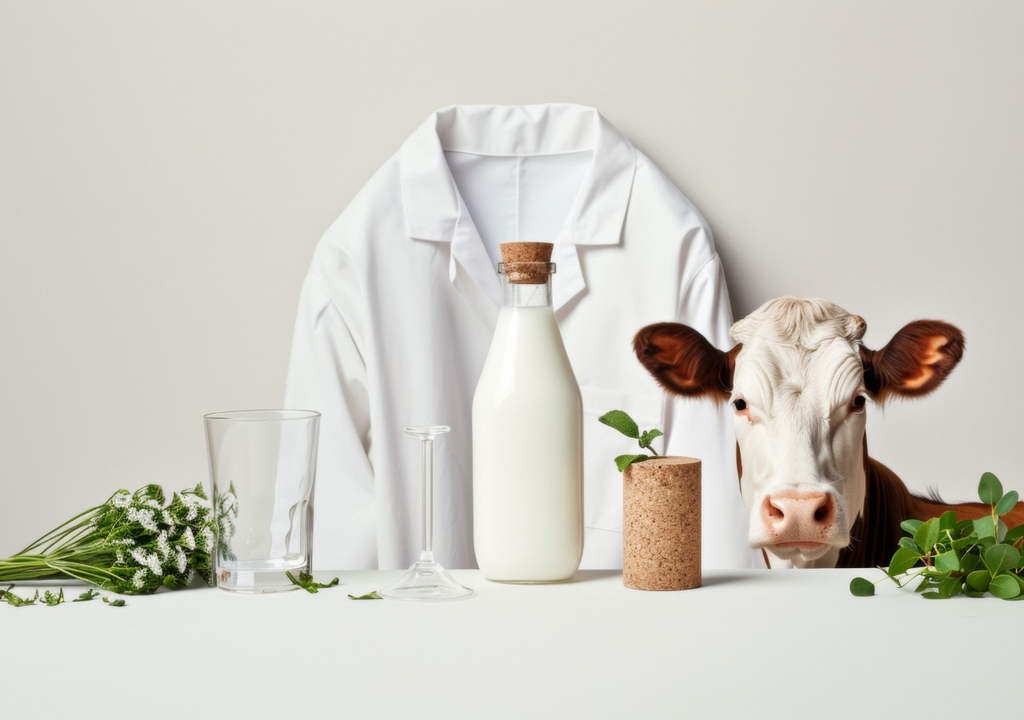Milk without cows? The new era of dairy, synthetic milk and sustainability
The dairy revolution is here! Laboratory milk offers a sustainable and delicious alternative to traditional milk, reducing carbon emissions and promoting food safety.

In recent years, the dairy industry has witnessed the introduction of laboratory milk, a product that is radically transforming the way we obtain our dairy products. Unlike traditional milk, which is obtained by raising and milking animals such as cows, goats or sheep, laboratory milk is the result of methods based on biotechnology and precision fermentation.
What is laboratory milk?
Laboratory milk is a synthetic version of traditional milk, developed through innovative processes in specialized laboratories. Instead of obtaining milk directly from animals such as cows or goats, companies such as Remilk and Perfect Day use genetically modified microorganisms, such as yeasts, to produce dairy proteins.
These proteins are combined with vegetable fats, sugars and vitamins to recreate a nutritional composition similar to that of animal milk. The process begins with precision fermentation, where the genes responsible for dairy proteins are inserted into microorganisms such as yeasts. These microorganisms act as biological factories, efficiently producing the desired proteins.

Once the proteins are produced, they are mixed with vegetable fats, sugars and other essential nutrients to replicate the complete composition of traditional milk.The resulting synthetic milk undergoes rigorous quality controls to guarantee its safety, flavor and nutritional characteristics. This process includes exhaustive tests to detect potential contaminants and ensure that the final product meets the required standards.
Advantages of laboratory milk
In terms of sustainability, the production of laboratory milk generates significantly less carbon emissions and uses fewer natural resources compared to the traditional production of cow's milk. This helps to mitigate the environmental impact associated with intensive livestock breeding for dairy production.
The production of laboratory milk can reduce carbon emissions by up to 97% compared to traditional milk obtained from animals, according to sustainability studies.
In addition, synthetic milk is free of potentially harmful components such as lactose, cholesterol, antibiotics and hormones. This feature makes it suitable for people with food intolerances or health concerns, providing a safe and healthy alternative.
An additional advantage is the nutritional control offered by laboratory milk. The composition of this type of milk can be adjusted and customized to offer specific nutritional profiles. For example, it is possible to reduce saturated fats or increase certain nutrients according to the needs and preferences of the consumer.

Finally, laboratory milk offers a consistent consistency and quality compared to traditional milk, which may vary due to environmental or seasonal conditions. This guarantees a reliable and high-quality final product for consumers at any time of the year.
Face to face; synthetic vs traditional
In terms of flavor and texture, laboratory milk has been meticulously developed to imitate the characteristics of conventional milk. Through advanced flavoring and emulsion techniques, it is possible to offer a sensory experience similar to the consumer, providing a final product that is very similar to traditional milk.
In terms of nutrition and health, both milks contain proteins, fats, vitamins and minerals essential for a balanced diet. However, laboratory milk has the advantage of being able to be designed to be healthier. For example, it can be free of lactose and cholesterol, which makes it suitable for people with food intolerances or specific health concerns.
In terms of environmental impact, the production of laboratory milk is more sustainable. It generates less carbon emissions and uses less water and terrestrial resources compared to traditional milk obtained from animals.
With the growing interest in alternative proteins and food technology, laboratory milk is gaining ground as a viable and sustainable alternative to traditional milk. Ultimately, laboratory milk represents a great step forward in food innovation, defying traditional conventions and promoting a more ethical and sustainable approach to food production.




